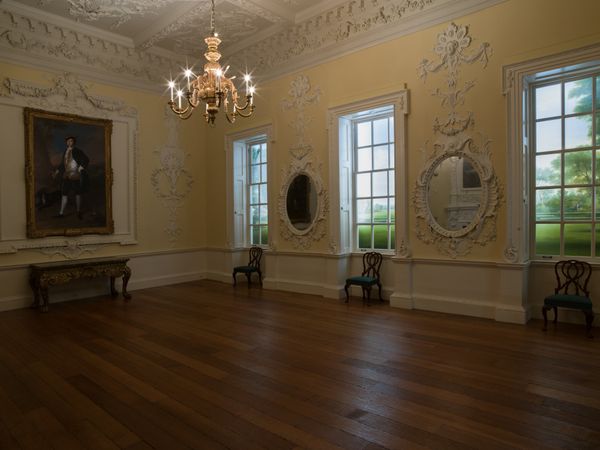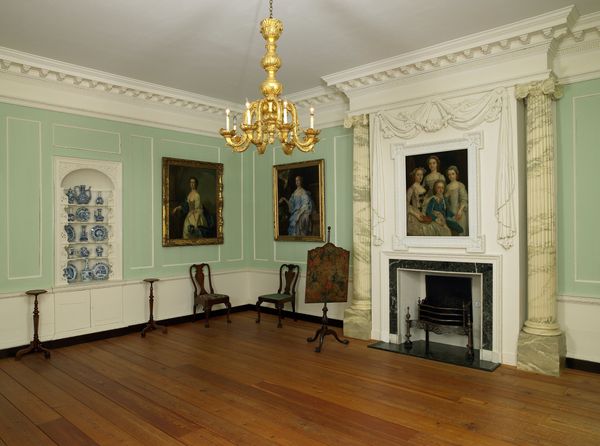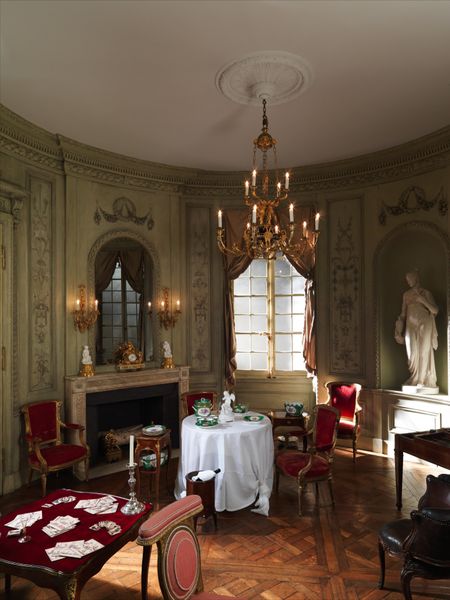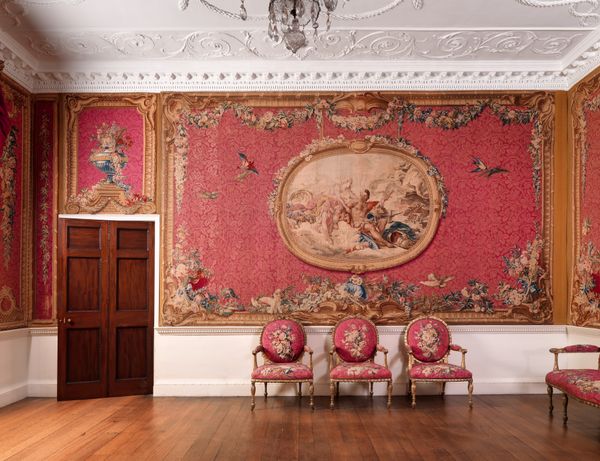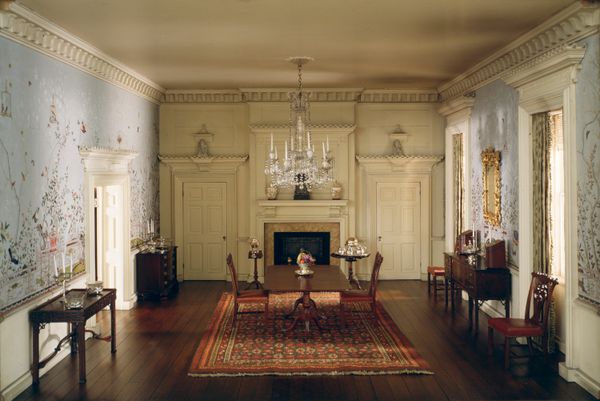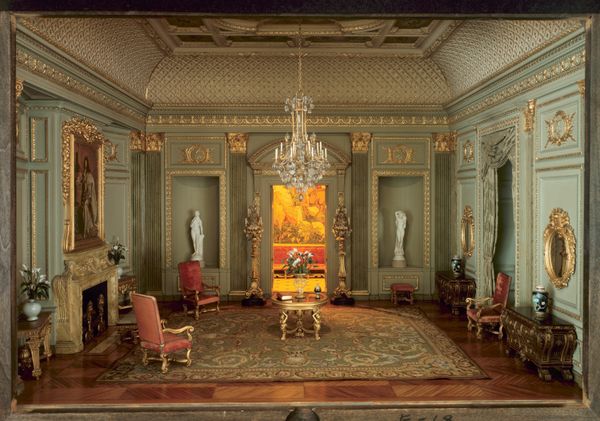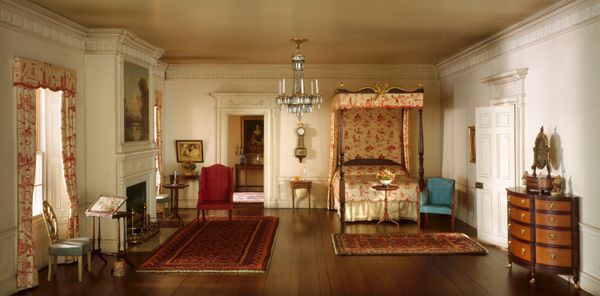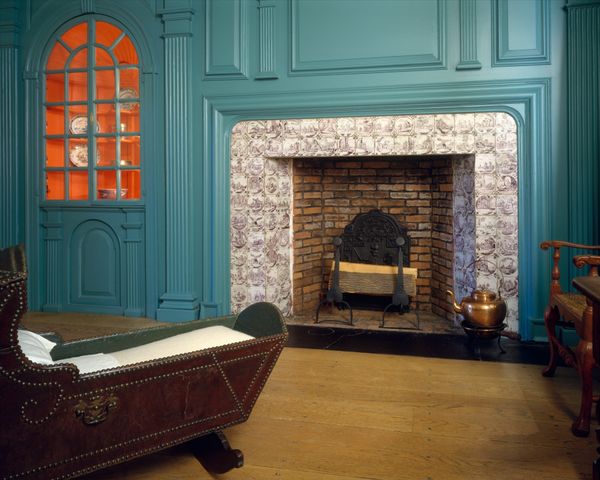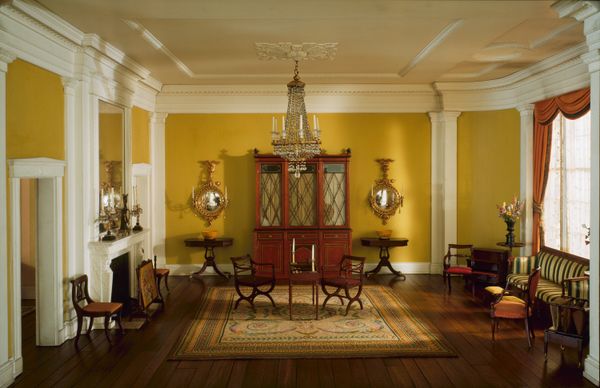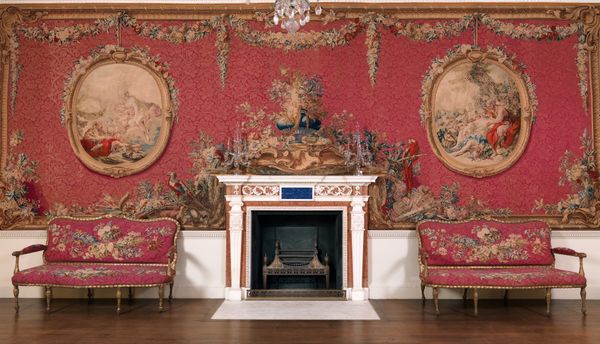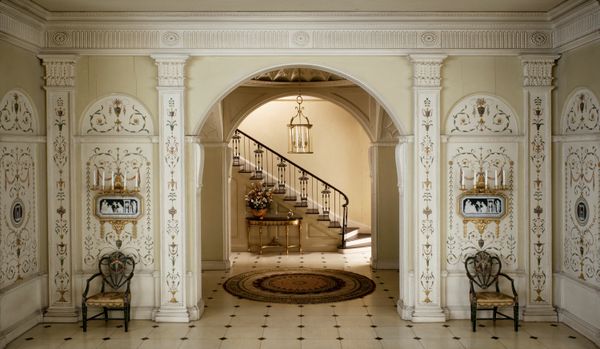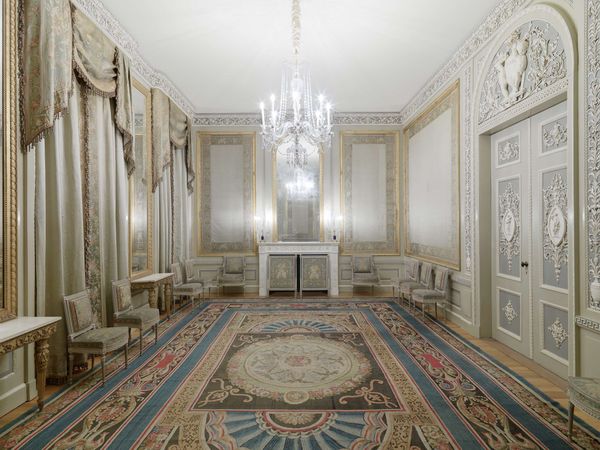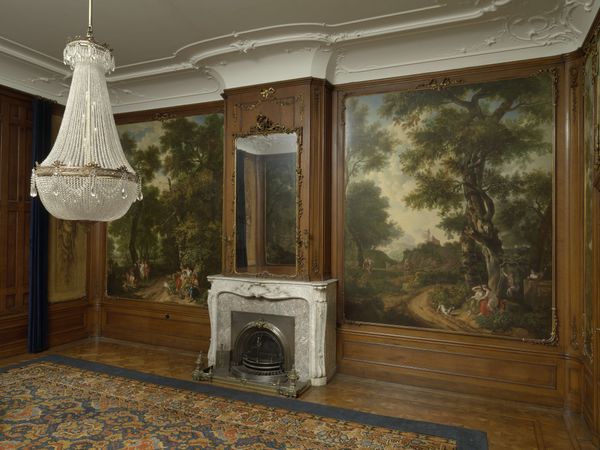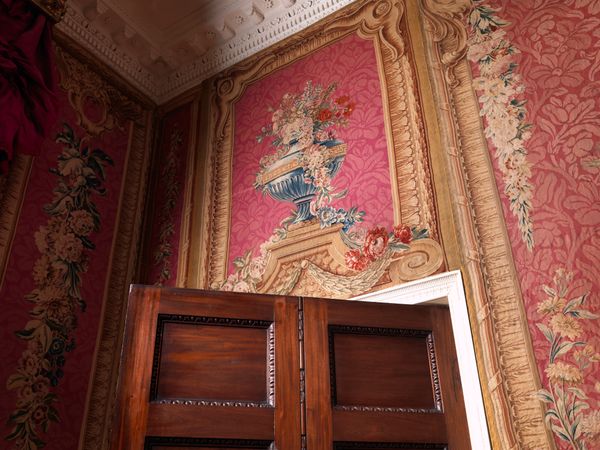
drawing, sculpture, marble, architecture
#
interior architecture
#
drawing
#
neoclacissism
#
sculpture
#
decorative-art
#
marble
#
architecture
Dimensions: room, confirmed: 17 ft. 11 in. × 46 ft. 9 in. × 24 ft. 1 in. (546.1 × 1424.9 × 734.1 cm); 48 ft. 7 in. length to inside window niches (1480.8 cm) mantelpiece: 75 × 87 3/8 in. (190.5 × 221.9 cm)
Copyright: Public Domain
Editor: We're looking at the "Dining Room from Lansdowne House," created between 1766 and 1769 by Robert Adam. The room incorporates drawing, sculpture, marble and architecture. The arrangement has such rigid balance to it; what stands out to you in terms of the visual arrangement of the room? Curator: The interplay between the architectural elements and the sculpted figures presents a compelling dialogue of form. Note the placement of the sculptures within the alcoves, their arrangement mimicking the architectural rhythm. This regulated structure yields balance to the interior space. Editor: I notice the contrast between the sculptures inside versus outside. The room seems to blend neoclassical rigidity and a sort of naturalism with the sculptures inside, but the landscape showing through the window feels less constrained, more “alive”. What do you make of that tension? Curator: Precisely! That juxtaposition is not accidental. Consider how the rectilinear nature of the windows frames and contains the external vista, domesticating the wild within an organized structure. What does that say about the role of the interior versus the world? Editor: So, the internal architectural order controls even what "nature" is allowed to show! That's wild! The controlled neoclassical sculptures become the point then. Curator: It is indeed through such structural juxtapositions that Adam underscores the intellectual and aesthetic priorities of Neoclassicism. Did anything shift in your observation now that you realize its purpose? Editor: Definitely! It seemed beautiful, but now I realize how purposefully constructed its beauty really is. Curator: A new perspective has changed our awareness to the intent of order, structure, form, and composition.
Comments
No comments
Be the first to comment and join the conversation on the ultimate creative platform.
